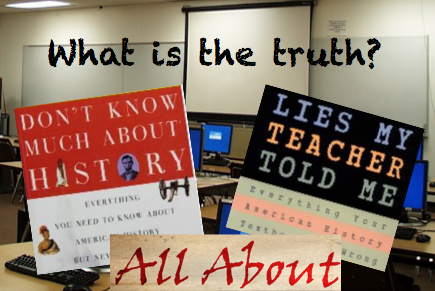With Columbus Day upon us, we face the reality that what is taught in our classrooms, or at least presented in our textbooks and other resources, is not always the truth, but instead folklore or misrepresentation of actual events. In our modern technology-based classrooms, we have a new challenge: Steering students away from sources that are not reliable, and helping them to understand that what they read online is not always the truth of the matter!

In the past, History courses were taught with a silent understanding that the textbook, while not always accurate, was the truth to be told in our classroom instruction. The words in the text became the standard, and for generations, students were given one-sided interpretations of historic events. Now, we can check that information in a number of ways.
Bringing Varied Perspectives into the Social Studies Lessons:
- Using Primary Sources to allow students to develop their own view on historic events or topics from history.
- Provide varied resources that illustrate the opposing views on history, allowing students the opportunity to see that historic events can be seen and recorded in a variety of ways, some with bias or set objectives.
- Teach students to test the information they have on hand for reliability. In our modern tech-dependent world, this may be a valuable lesson, far beyond the value of our standard Social Studies lessons.
Here a a few tools to help with teaching this valuable lesson:
- How to Judge the Reliability of Internet Information – a step-by step guide for evaluating resources on historic events.
- The Georgetown University Bulleted Guide to Evaluating Internet Resources.
- A fun FREE Internet Reliability Activity to help your students easily learn a costly lesson on trusting Internet sources at face value!
- And a great book every U.S. History student should read: Lies My Teacher Told Me!
And once they learn this lesson, they may be one step closer to understanding that each historic event can never be truly understood as absolute truth. After all, history is relative!

Happy Teaching!